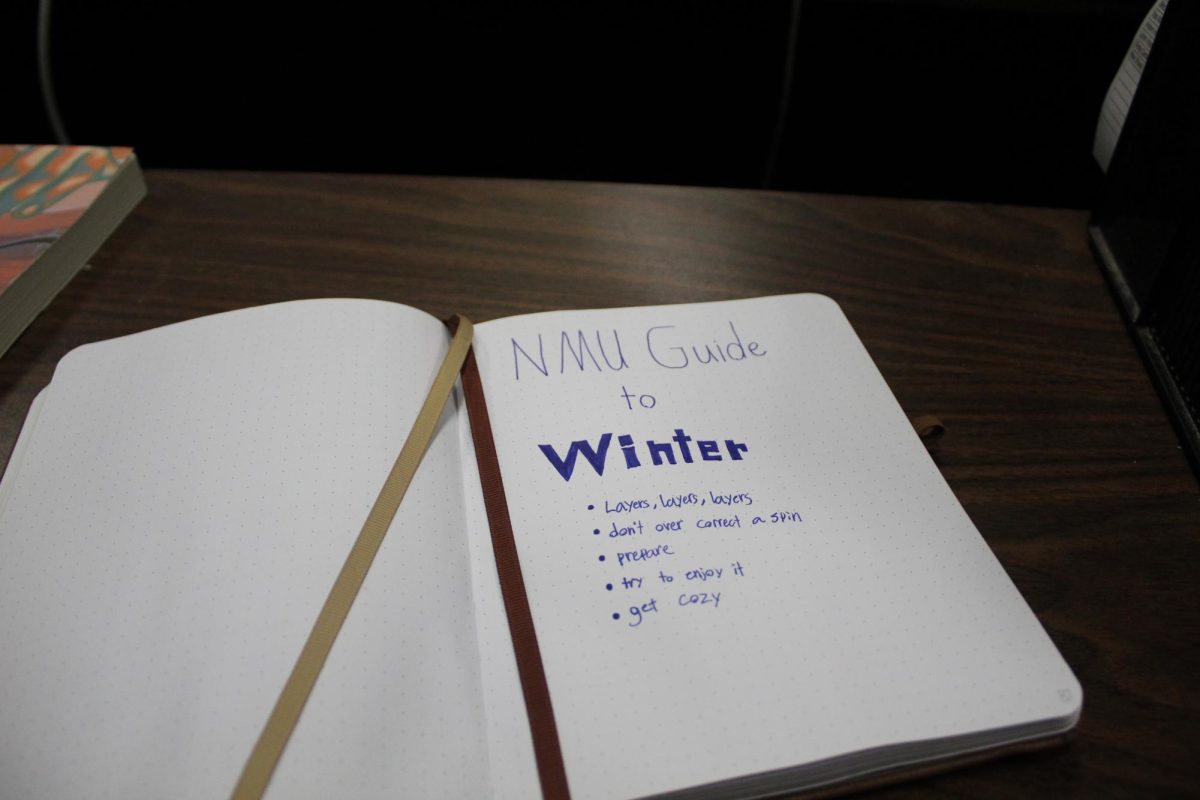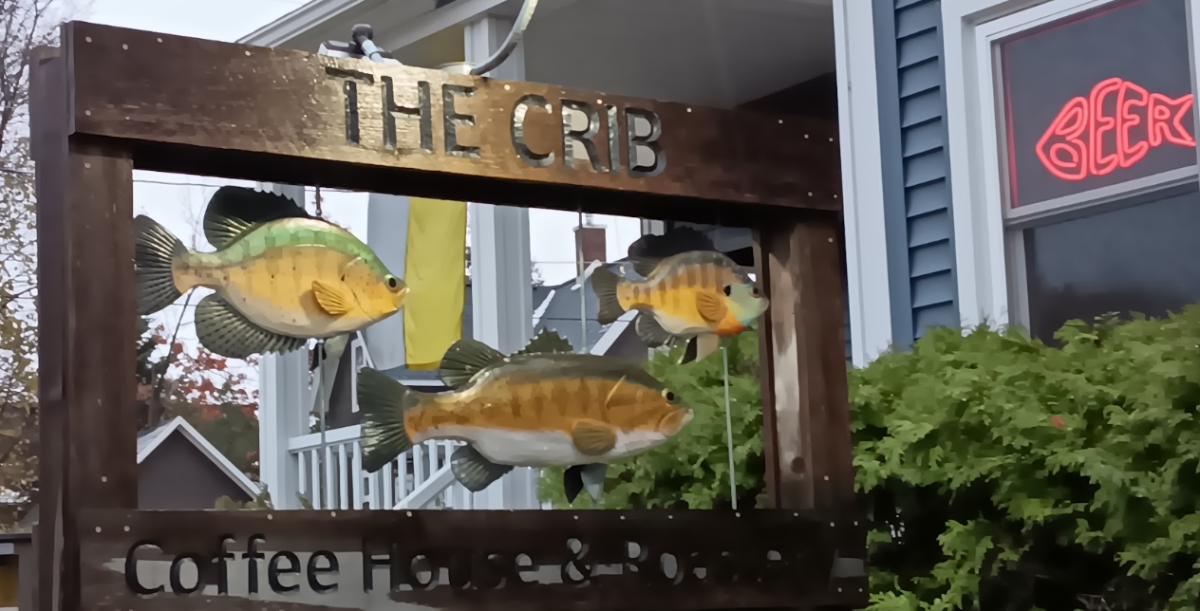The following is the email sent to the NMU faculty campus wide from President Fritz Erickson, debunking many of the rumors that have surfaced this semester:
President’s Update: Rumor Has It
Rumor Has It ….
All colleges and university campuses have active rumor mills. Right now, Northern’s is running at full capacity. It’s not a surprise considering we’re in the middle of making structural budget reductions at the same time that we’re working on transformational, strategic change.
Change is a challenge but also an opportunity. While it is true that we have enrollment declines, we have many more opportunities than challenges. One outcome of challenges is the expansion of strange and unfounded rumors. Of course, the positive side about an active rumor mill is that you find out what areas are of most value to a campus by monitoring rumors. The down side is that rumors cause a lot of unnecessary anxiety and often become serious time robbers. The amount of time we spend dealing with rumors and misinformation on campus has been considerable these days. This is time that could be spent on other, more positive endeavors.
I also find it interesting how many things are suddenly being blamed on changing budgets that are actually part of our normal university activity. This includes our normal semester-by-semester hiring decisions for non-tenure track positions. We need to be careful not to dramatize our normal university processes. We need to set the example on how we embrace varying opinions and perspectives and work together for the common good. With that in mind, I thought it would be helpful to share with you some of the rumors I’ve come across lately, and tell you want I know about them. The list is long, but as I said, the rumor mill is really active. The interesting thing about rumors is that somewhere in all of the inaccurate information there is usually one, small granular of truth. I hope I can help you identify the truth from the myth with this update.
Rumor has it …
150 faculty members are being cut: I’m so curious as to where this number is coming from and I’m on the hunt to find out. To most of us, as soon as we hear this, we immediately think, “That number makes no mathematical sense.” We are down 423 students this year, which is 4.92% of last year’s student population. Since 2011, we’re down about a 1,000 students, which is 11.3% of the student population. Today, we have 443 faculty members, which includes 307 full-time faculty (287 AAUP, 20 NMUFA, including term), 74 contingent faculty and 62 adjunct instructors. If we were to cut 150 faculty (regardless of level) that would be 33.7% of the overall teaching population at Northern. Why would we consider reducing our faculty by 33.7% when our student loss percentage is 4.9% this year and 11.3% in the last five years? I think this number has swelled in the emotion of having to make budget reductions. It’s greatly exaggerated.
Northern is dropping all of its baccalaureate programs and becoming a community college: A student asked me this other day, “When will NMU be dropping its baccalaureate programs to become a community college?” You can imagine my surprise, and to be more accurate, my horror. I thought she might be kidding, but she was serious, having overheard faculty members venting about budget cuts and hearing something they said that made her believe that NMU was becoming a community college. This serves as a powerful reminder that we need to be concerned about what we say in the presence of others as our words can be misinterpreted in seriously harmful ways. It may seem obvious to you and me that Northern is not even remotely considering become a community college-only institution, but it wasn’t to this student.
All HP elective courses are going to be cut: As we head into next semester, the College of Health Sciences and Professional Sciences and the School of Health and Human Performance staff members are reviewing high-interest and low-interest HP activities courses and determining how many sections for each course are needed, along with whether low-demand courses should be offered at all or offered on a less frequent basis. We are also looking at where there are duplicated activities courses between NMU’s curricula and the offerings of our PEIF recreational sports program. As a way to trim costs in the Health and Human Performance Department, we will probably not duplicate courses that are offered through PEIF membership.
Another option is to think of a different funding mechanism for many of these activity courses. It may be possible to using a continuing education model. For example, move our self-defense courses, which currently are offered under the RAD program, to being offered as part of the NMU Police Safety Institute. Offered as part of the Institute, we could deviate from the RAD program, which only allows women to take the course, to being able to offer it to all students. We’ve had requests for this course from some of our transgender students. That and example of one possibility of offering a current course, but doing it through a different model.
Remember, just because it is possible does not mean we are or should do it. HP activities courses have not been unilaterally eliminated. Rather, some courses may have fewer sections, some courses may be offered less frequently and those with low demand may be eliminated. Other activities currently available as HP activities courses may be offered through other delivery mechanisms on campus.
There is going to be one other general HP course, like HP 200, that will be the only other HP offering: I have no knowledge of any proposal to make a second HP 200-like course to replace all HP activities courses. My understanding is that the Health and Human Performance faculty are in the process of examining the current HP graduation requirements, but that is very much a departmental decision.
Smaller departments on campus will cut more of their staff and a favorite professor could be laid off:Although the academic colleges, schools and departments were given various options for approaching the necessary budget reductions, the deans and department heads chose to meet the Academic Affairs division’s reduction figure by spreading the cuts across the units, meaning large departments need to come up with options that total a larger dollar figure than smaller departments.
That said, regardless of department size, budget reductions do need to consider to some degree whether the department is growing or shrinking in enrollment. It only makes sense that something that is growing will receive more funding for faculty and resources while programs that are shrinking will not need the same level of faculty and resources they once did.
With the university cutting courses, students won’t be able to get the classes they want or need: Our commitment is clear – we must offer the courses and seats that students need to graduate in a timely fashion. We’ve asked departments and programs to become more efficient in how they offer courses, not that they take broad strokes in making cuts to courses. For instance, this might mean instead of offering three course sections that only get enrollment of 10 students each, the department might offer two course sections with the option that if both filled to capacity, a third would be added when there are enough students on the waiting list to fill another section.
Students might not be able to graduate on time if classes for their major are cut: Our No. 1 concern is for students to be able to graduate in a timely manner. While courses may not be offered in the same sequence or as often as in the past – a decision that will be made on a department-by-department basis – it is critical that every department work with graduating students to help them complete their degrees without delay.
Departments don’t have any choice over what will be cut within their programs: Actually, departments have a lot of the decision-making power regarding how they will meet their budget reduction target. The central administration has been clear and consistent in the message that faculty, department heads and deans work together to be as creative as possible. Neither the Provost nor I have made one course or program decision to this point, choosing instead to leave those decisions in the hands of the people who know the students’ needs, courses and programs best.
No term contracts will be renewed. No adjuncts or contingents will be hired for winter semester: False. Each semester, as we have done for decades, we hire adjuncts, contingents and term based on need. That will continue.
All adjunct instructors will be fired: False. See above.
Concurrent enrollment is a plot to get rid of adjunct/contingent faculty by increasing the number of incoming freshman who have already taken college courses in high school: The actual “plot” for concurrent enrollment is two-fold: recruitment and cost savings for student. Student who can take college courses for free while completing their high school diploma will save money on their overall college degree completion by speeding up their time to degree completion. A lot of that cost saving is not related just to tuition, but also to the living expenses. Completing one semester of college in high school is not a $4,809 tuition savings (NMU undergraduate resident tuition for one semester), it’s a $9,852 tuition, room and board, and books savings. I emphasize again, students and their families can potentially save nearly $10,000 saving by completing ONE semester of college credits (12-16 credits) prior to high school graduation. It also provides a great incentive to continue their college education right here at Northern.
Budget reductions are limiting department heads in terms of staffing courses, and this is why so many of our contingent faculty are now finding out they will not be teaching in the winter semester: Its student population size and its subsequent impact on student demand for courses that is directly related to staffing courses, not budget reductions. Fewer students need fewer sections of courses. Evaluating how many part-time faculty are needed for courses is done every semester and is adjusted every semester to best match enrollment.
The NMU Bookstore is being privatized: Northern is exploring options for the Bookstore, as many universities have done. There is a chance in the future that the university will rent out space to a private company for a full-service bookstore or possibly just an apparel store. This fall we are putting out a Request for Proposal (RFP) and will have more information once those are available. We have a very good Bookstore with a great staff, but changes in online book purchasing have impacted our store in the same way it has bookstores across the country. Because of that, now is the time to explore various options.
Many offices are moving from Hedgcock to the University Center: At this time, the only office being considered for relocation from Hedgcock is the NMU Counseling and Consultation Center, which will be combined with the NMU Health Center on the second floor of Cohodas when the academic departments currently in that location move to the renovated Gries Hall this spring. Throughout the past two years, we have considered moving several office and departments all over the campus as we tried to decide how the Gries, McClintock and University Center renovations could impact various departments and buildings. Sometimes you have to brainstorm at a very high level to see what great ideas shake out. That means we’ve had literally dozens upon dozens of discussions about many, many different offices and departments being relocated, but in the end the only departmental relocations are those Vice President Gavin Leach presented in his latest Campus Connect update (www.nmu.edu/campusconnect), which mostly impact academic departments being moved from Cohodas to Gries and McClintock in order to get them closer to the academic core.
The lacrosse women’s team will not happen: We’re in the process of hiring a coach. In our initial efforts, we didn’t have a successful search. Getting the right coach is key to the success of any athletic program. When the addition of four sports was approved by the NMU Board of Trustees in September 2014, it was with the understanding that we would try to have men’s swimming and diving and women’s golf up and running for 2015-16 (and we do), and that we would begin to work on bringing men’s soccer and women’s lacrosse programs on board with a tentative goal of their first season being in 2015-16, if that timeline worked out with regard to coaching hires, recruiting cycles and facilities. Men’s soccer looks to be ready to begin next fall and our goal is that women’s lacrosse will be as well. But if we don’t hire a coach by Nov. 1, we’ll delay the start of the program until 2017-18 so that our first year of recruiting doesn’t have to be done outside of the traditional lacrosse recruiting calendar.
Baccalaureate programs are being dropped to 120 credits because courses are being eliminated: The truth of this statement is that at least one college – the College of Business –has re-evaluated its degree programs and made the faculty-directed decision to reduce its bachelor’s degree requirement to 120 credits for all of its majors. This isn’t a budget or enrollment decline decision. This has to do with studying and keeping up with national trends. At many universities, baccalaureate degrees have 120-credit programs. Northern is a tad on the high side compared to the national standard in that most of our degrees require 124 or more.
Northern wouldn’t have a need to reduce its budget if so many new vice presidents hadn’t been hired: When I arrived it became clear that we needed someone to focus on and expand our off-campus and online offerings. To do this we needed to do two things. First, develop a budget model that would not impact the general fund and would be based on new revenue. Second, we needed to hire someone to do this. For this reason we have added a new vice president who is required to “pay for his position and operation.” He is well on our way. By the way, staff and administrative budget reduction proposals are being reviewed in the same manner that the academic ones are, and those will result in some changes.
All the discussion of building renovations, but no discussion of renovating the Learning Resource Center must mean it’s no longer the top facility project: Nothing could be further from the truth. The LRC renovation remains our No. 1 capital outlay project. The difference in renovating the University Center, Gries Hall, possibly Lee Hall and new residence halls and apartments compared to the LRC is directly tied to where the money comes from to do the work. Because the LRC is an academic building, the bulk of the funding to renovate it would come from the State of Michigan. While the state has not been funding a lot of capital outlay projects recently, we remain optimistic that the LRC project will be funded in the not-too-distant future. The funding to renovate Gries Hall and a possible future renovation of Lee Hall are driven by private gifts from donors. The new residence halls and apartments would be done through a public-private partnership, which would require very little investment on the part of the university. The funding for a U.C. facelift will have to be university funded because state money cannot be used for auxiliary service facilities.
All RD and RA positions will be eliminated if NMU creates new residence halls through a public-private partnership: Not true. In the public-private partnership, NMU would retain management of the student life operations of these facilities. From a student standpoint, these halls and apartment will not seem operationally much different than what Northern has today.
These are the rumors I’ve heard. What about you? If something starts with, “I heard…” please apply your best critical thinking to what comes next. If something seems outrageous, it probably is. Rather than perpetuate something that may or may not be true, ask. I may not be the one who can give you the answer, but I can help you find the right person to do so.
I hope this information is helpful. Remember, our opportunities far outweigh our challenges right now. This can be a time of transformational change Northern, a turning point in the university history.
Sincerely,
President Fritz Erickson



























